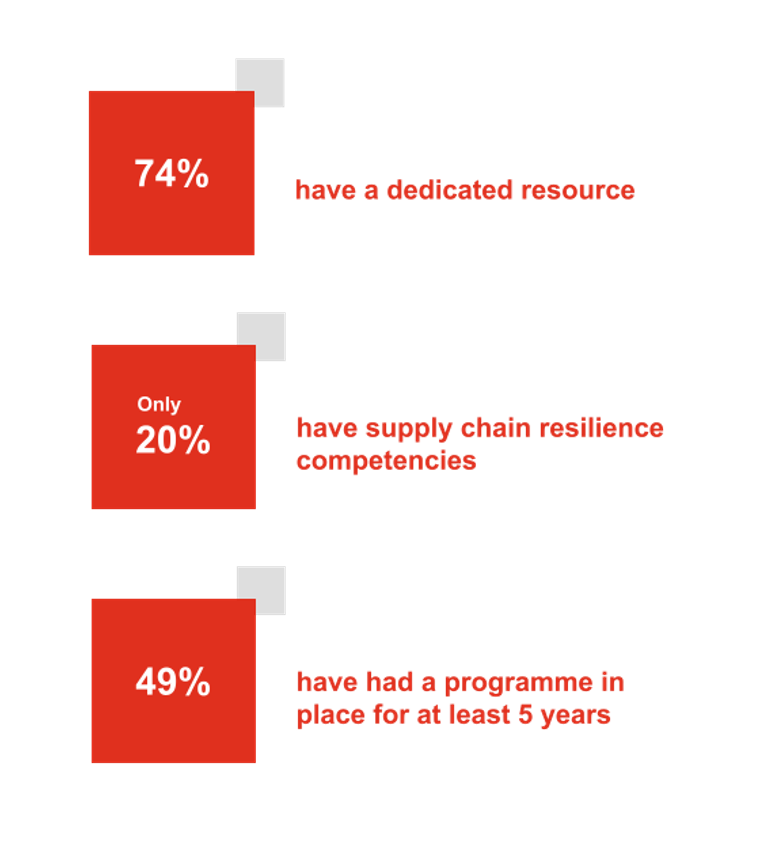*Middle East respondents
Key findings and takeaways
An integrated resilience programme is essential
Organisations are looking to move away from a siloed approach to resilience and instead apply an integrated approach.
The Middle East is forging ahead with 33% of our Middle East respondents stating that their organisations have fully integrated approach compared to the global average of 21%.
To start, leaders should consider the roles, responsibilities, governance, objectives, strategy and other key elements – and design a programme that extends across the enterprise and into every facet of the business.
Organisations with a resilience strategy driving an integrated programme not only can identify and manage risks better, but can identify opportunities amid disruption.
This allows business leaders to take appropriate risks in a way that is aligned with the overall business plan and prioritise investments based on what is critical to the organisation and stakeholders.

Thriving in today’s volatile environment requires an executive leader and upskilled teams
A successful resilience strategy and programme encompass:
Accountability
Executive sponsorship from the C-suite.
The executive sponsors are accountable for establishing the target maturity for the resilience programme and making sure it is appropriately funded and staffed, ensuring it meets expectations.

Responsibility
A programme leader with clear responsibility.
Appointing a Chief Resilience Officer might not be the answer for all organisations, but this lack of clear enterprise wide responsibility can undermine focus and direction. A dedicated programme leader with full responsibility can ensure resilience is integrated into operations and culture throughout the organisation.
Upskilling
A skilled team to do the day-to-day work.
Building a team with the right skills is a major hurdle in establishing a resilience programme. The field needs a pool of talented resilience professionals with the experience and skills to execute a strategic, integrated programme and respond effectively during a crisis. Providing suitable investment in training and professional development helps organisations overcome this challenge and develop the team they need.
Building operational resilience is the future.
As more organisations look to integrate their resilience programmes, there is a clear trend toward adopting core principles of an operational resilience (OpRes) approach.
OpRes focuses on establishing and continuously maintaining core elements of non-financial resilience, informed by a strategic view of what is most important to the organisation and its stakeholders.

The first step is identifying the critical business services for the organisation. From there, organisations should carefully map them, end-to-end; clearly understand the impact and priority of systems, applications, third parties, people, physical property and data; and establish mature exercise and testing capabilities based on arduous — but plausible — scenarios.
The importance of technology’s role in this cannot be overstated. An increasing number of business leaders understand the need to underpin resilience strategies with technology that allows them to obtain actionable and real time data from across the whole organisation.
Snapshot of business continuity and crisis management guidelines in the Middle East
The way forward - investments and an integrated approach
To build a trusted and agile organisation, it is vital to invest in resilience across functions and people, and to focus on an integrated approach.
Being resilient by design is critical for survival and strategic advantage and is imperative for leading organisations. The ability to adapt and respond to disruption is vital to maintaining the trust built with stakeholders and protecting shareholder value and reputation – all at a time when the expectations for the resilience of businesses and government have never been higher.

Contact us














